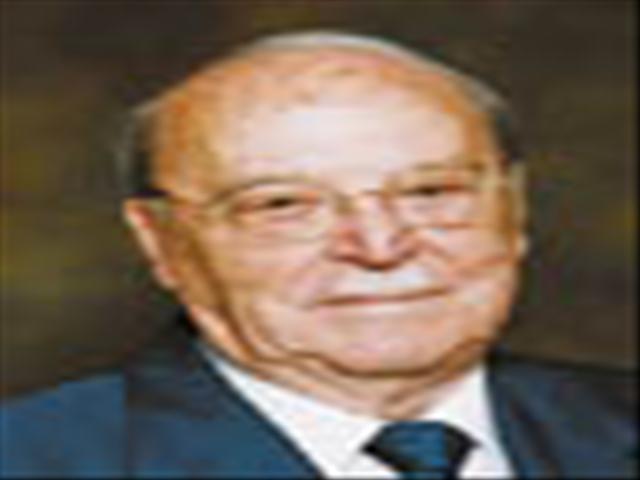 Die hoofbestuur van die Universiteit van die Vrystaat (UV) het met hartseer verneem van die afsterwe van dr. Barnie Human.
Die hoofbestuur van die Universiteit van die Vrystaat (UV) het met hartseer verneem van die afsterwe van dr. Barnie Human.
Dr. Human het ‘n B Com- en honneursgraad aan die UV verwerf. Sy bande met die UV strek oor amper veertig jaar. Hy was vanaf 1967-1995 lid van die UV-Raad en was vir meer as dertig jaar betrokke by fondswerwingsprojekte vir die Ontwikkelingstrustfonds van die UV. In 1977 is hy verkies tot nasionale voorsitter van die UOVS Oudstudente Reünie, voorloper van die latere Kovsie-Alumni Bond. Hy is in 1981 deur sy alma mater vereer met ‘n eredoktorsgraad in ekonomie.
Dr. Human, wat deurlopend baie aktief betrokke by die aktiwiteite van die Kovsie- Alumni Bond, het in 1985 die Bond se hoofbestuurstoekenning ontvang vir uitsonderlike diens gelewer aan die UV. Hy is ook in 1993 aangewys as ere-trustee van die Ontwikkelingstrustfonds.
In Oktober 2004 het die UV hom vereer met ‘n Eeufeesmedalje vir sy bydrae tot die ontwikkeling van die UV se fondsinsamelingsaksies, veral ten opsigte van die vestiging van fisiese fasiliteite op die Hoofkampus in Bloemfontein. Sy geldelike bydrae het die UV in staat gestel om die Callie Human-sentrum te bou. Die sentrum is ter nagedagtenis van sy seun, Callie wat in 1967 in ‘n motorfietsongeluk oorlede is, opgerig.
“Dr. Human was ‘n ware steunpilaar vir die UV. Ons is dankbaar dat ons hom in 2004 daarvoor kon vereer met ‘n Eeufeesmedalje voor sy afsterwe,” sê prof. Frederick Fourie, Rektor en Visekanselier van die UV.
“Ons simpatiseer ook met mev. Swannie Human en die egpaar se dogter, mev. Christina Strydom. Dr. Human laat nie net ‘n leemte in die Bloemfonteinse sakewêreld nie, maar ook in die harte van die mense aan die UV wat hom geken het en saam met hom gewerk het,” sê prof. Fourie.
Mediaverklaring
Uitgereik deur: Lacea Loader
Mediaverteenwoordiger
Tel: (051) 401-2584
Sel: 083 645 2454
E-pos: loaderl.stg@mail.uovs.ac.za
21 Junie 2006